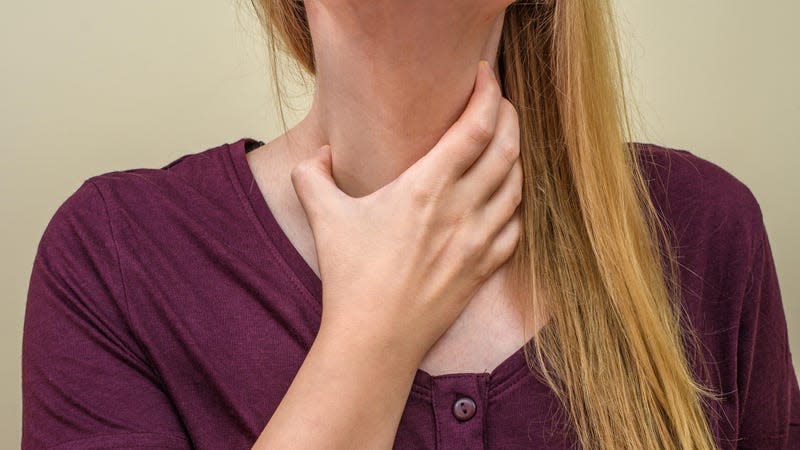Covid-19 Paralyzed a Teen Girl's Vocal Cords, Doctors Say

We’re still discovering new ways covid-19 can harm us, some four years after the emergence of this complicated viral disease. In a recent report, doctors in Massachusetts describe a teen girl whose vocal cords became paralyzed soon after a bout of covid-19. The girl required a tracheostomy in place for more than a year to help her breathe, though doctors did eventually remove it.
The case report, published this week in the journal Pediatrics, was written by doctors from Mass Ear and Ear, a part of Mass General Brigham, the state’s largest health care system.
Read more
This New Development Could Make Cardi B and Offset’s Split Uglier
‘Gooey Mess’ Tesla Cybertruck Deliveries Held Up By Battery Production Nightmare
Aquaman And The Lost Kingdom review: A farewell with a focus on fun
Scientists are still trying to understand how covid-19 can cause neuropathy and other lingering complications. It’s possible that nerve damage could arise from the coronavirus directly infecting certain nerve cells, for example. But the infection might also indirectly trigger neuropathy sometime later by triggering inflammation or blood vessel damage. In some cases, it may be a mix of all the above.
“The virus has known neurologic complications, including headache, seizure, and peripheral neuropathy,” the doctors wrote in the paper. “The current case reveals that vocal cord paralysis may be an additional neuropathic sequela of the virus.”
Bilateral vocal cord paralysis can be life-threatening, since it can stop air from reaching a person’s lungs and suffocate them. Doctors initially tried and failed to treat the girl’s paralysis with speech therapy. So they then opted to give her a tracheostomy, or a surgical opening in the windpipe that would allow her to breathe through a tube. As of the case report’s submission, the girl had been dependent on tracheostomy for more than 13 months, while the doctors waited to see if the paralysis would heal on its own.
Eventually, at her request, they decided to remove the tube and use a piece of rib to reconstruct her airway and make it wider—just in time for her to attend her high school prom and graduation ceremony without it. Though her cords do still appear to be paralyzed and may never regain movement, the surgery has allowed her to live a relatively normal life.
“Now she’s speaking and breathing and eating and going about her life and applying to college—doing everything we would want for all of our children to do,” Hartnick said. “So there is a happy ending.”
These cases appear to be rare, and covid-19 in general has gotten less dangerous over time. But the report authors say that doctors should remain vigilant and suspect covid-19 when they come across patients with similar symptoms, including in children.
“I think the reason to highlight this is the general perception that there are things that can’t happen to children that do happen to adults,” Hartnick said. “Zebras do happen. And if something doesn’t fit, then we have to keep searching and hunting until we can find an answer that makes sense. And once we find an answer, then we can hopefully treat it and with shared decision making find a way together.”
This article has been updated with comments from one of the study’s authors.
More from Gizmodo
Rebel Moon — Part One review: Zack Snyder delivers a soulless dud
Read About Everything Wrong With The Chevy Blazer EV That Edmunds Bought With Its Own Money
Steam Keys For This Gaming Disaster Are Being Sold For Hundreds Of Dollars
Sign up for Gizmodo's Newsletter. For the latest news, Facebook, Twitter and Instagram.
